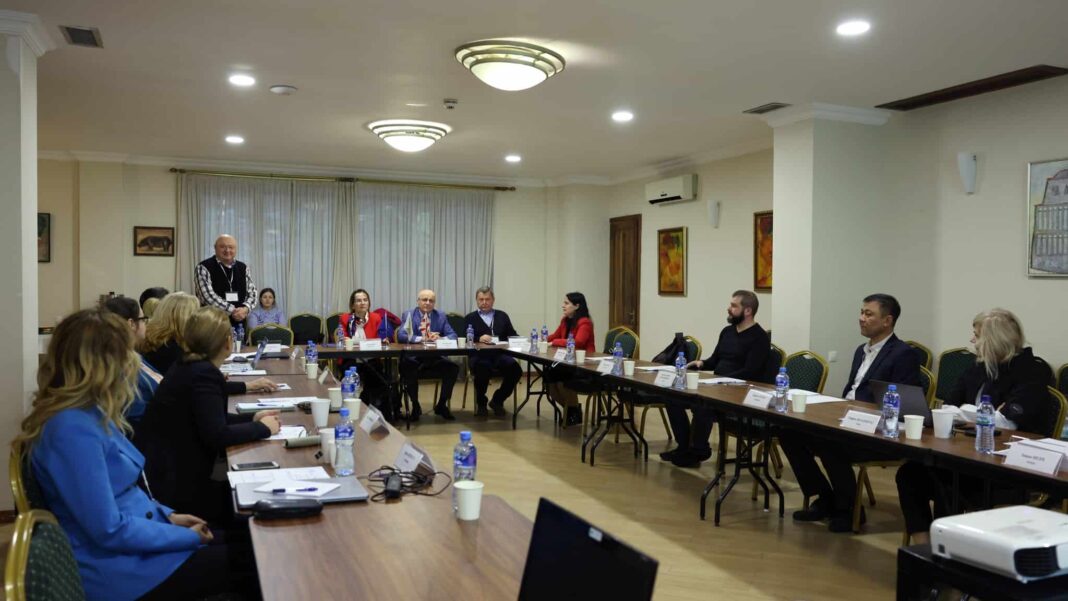The Summary meetings of the International Atomic Energy Agency’s (IAEA) technical cooperation project are underway in Georgia.
The Science and Research Center of the SIP Agricultural Research Center hosts the final meeting of the International Atomic Energy Agency (IAEA) technical cooperation project.
The Representatives of 20 countries involved in the project summarized the results achieved within the three-year project. They discussed the plans and potential projects for crop improvement in Europe and Central Asia.
The meeting was opened by Deputy Minister of Environment and Agriculture Yuri Nozadze, Deputy Director of the Agricultural Scientific and Research Center Nodar Khatiashvili and Project Coordinator of the Joint Atomic Energy Agency Fatma Sarsu.
Yuri Nozadze said, “I’m glad that Georgia and the Ministry of Environment and Agriculture are hosting the summary meeting of the technical cooperation project by the International Atomic Energy Agency and the UN Food and Agriculture Organization.”
In the international project, which included scientific studies and theoretical training courses, representatives of the scientific and research centre’s one-year research service were involved.
As part of the event, it is planned to visit the demonstration base in Tsilkani, where the delegation will get acquainted with the ongoing work, conducted studies and results.
International Atomic Energy Agency’s technical cooperation project RER5024, “Increasing the productivity and sustainability of major food crops in Europe and Central Asia towards climate change” has been underway since 2020, and final meetings supported and organized by the Georgian Ministry of Environment and Agriculture will be held in Georgia from 20-24 November.
IAEA Technical Cooperation Project
A new IAEA technical cooperation project was initiated in 2016 to improve the radioactive waste management systems at the two operating facilities in the country.
Support was provided to set up a national system for safely managing radioactive waste, including liquid radioactive waste, by enhancing capacity at the radioactive waste treatment facility near Saakadze.
The Infrastructure was improved, staff received training, and expert advice was provided on processing liquid radioactive waste and conditioning secondary waste.



